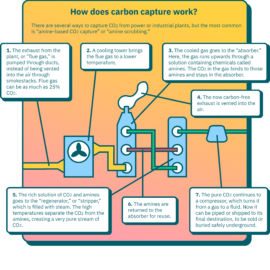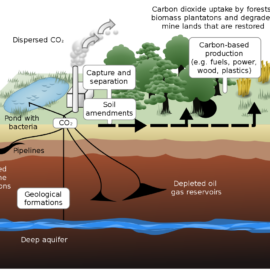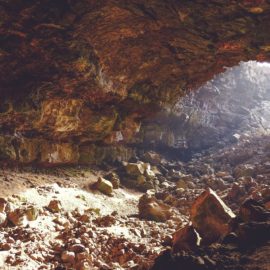
Many areas do not want carbon capture the the legislature says yes you do. Now that is in flux as some representatives are, shock, listening to their constituents.
In meeting after meeting, state lawmakers and parish leaders in the area around Lake Maurepas have been raked over the coals by local residents who are anxious and angry over plans for major carbon capture projects. State and industry leaders have lauded the plans to pump vast amounts of carbon produced in industrial processes deep underground as a way to reduce pollution and boost the economy. But over the past year, numerous residents have voiced alarm over what they see as a safety risk and a threat to the area’s environment. Under pressure from constituents, local parish councils passed temporary bans to halt carbon capture projects. But a federal judge recently overturned one of those bans, casting doubt on local leaders’ authority to intervene. Now state legislators who represent the area want to take matters into their own hands.
nola.com
There are many options but some say banning it from the area is one.
Some are proposing statewide rules to restrict carbon capture, like requiring local elections to approve carbon capture projects, making companies liable for any damage caused by the projects or barring the use of eminent domain to seize private property for pipelines and other carbon capture infrastructure. Other lawmakers are proposing bills that would specifically block the projects in the area around Lake Maurepas. The lake is at the center of controversy because of a proposed Air Projects hydrogen manufacturing complex in Ascension Parish that is slated to open in 2026. Air Products plans to inject more than 5 million metric tons of waste carbon per year underneath the lake. “St. Helena has two things that no one else can even compare to: We got the best water and the best air out of anyone in the Florida Parishes,” said Rep. Robby Carter, D-Amite. “It’s because we’re so isolated… But it would only take one big catastrophe and all that would be gone.” The legislation faces opposition from industry leaders, who say the fears about the projects are misguided. “What this suggests is there’s still not a level of education associated with the safety and effectiveness of carbon capture,” said Lauren Hadden, director of energy and environmental quality for the Louisiana Association of Business and Industry, the state’s largest business lobbying group. “We’re obviously a little disappointed to see these bills, but it’s our position that carbon capture is a safe and time-tested way to reduce the state’s industrial emissions while preserving the vital oil and gas industry within our state.”
Could there be statewide restrictions?
A Livingston Parish legislator, Albany Republican Rep. Sherman Q. Mack, has filed two carbon capture bills. One requires a local election for the approval of carbon dioxide sequestration projects within a parish, while the other would ensure carbon dioxide injected for geologic sequestration be transported to and stored in the Gulf of Mexico. “This is a way to hand it to the people, let them decide, let them get educated,” Mack said. “This is not something the citizens in Livingston Parish want. You have to represent the will of the people.” He added that despite the companies’ promises of economic growth for the region, “you can’t put a dollar tag on” a community’s way of life. A spokesman for Air Products did not provide comment on the pending legislation related to carbon capture. Carter said his focus this session is on protecting citizens’ property rights. He is proposing a bill to prohibit the use of eminent domain for carbon sequestration projects, which allows the state to seize private property to build structures like roads, bridges and pipelines. “I believe in very few instances where eminent domain should be used, but specifically not in an area where there’s economic gain and not a public interest,” Carter explained.
Eminent Domain has not been used yet.
None of the roughly 20 proposed carbon sequestration projects in Louisiana are currently exercising eminent domain to build pipelines, according to Department of Natural Resources spokesman Patrick Courreges. Carter said he didn’t want to see Louisiana be the “guinea pig” for industrial-scale carbon sequestration projects, citing a carbon dioxide pipeline rupture from 2020 in Satartia, Mississippi that forced about 250 residents to evacuate and 49 to be hospitalized, Mississippi Today reported. A similar eminent domain bill passed last month in Iowa’s House of Representatives, according to Iowa Public Radio, which would ban the use of eminent domain for carbon capture pipelines unless 90% of the route was already acquired through voluntary land sales. More than 3 in 4 Iowans oppose eminent domain use for carbon capture pipelines, a poll sponsored by the Des Moines register shows. Carter also authored a bill that would make petrochemical companies liable for any damage carbon sequestration causes to residents’ property.
There are some proposed regulations for specific areas.
Some of the proposed more narrowly seek to stop carbon capture in specific places. Carter has proposed a bill that would ban carbon sequestration projects from St. Helena Parish altogether. A rural parish of only about 11,000, St. Helena currently has a year-long moratorium in place on injection wells used for carbon sequestration, passed by the police jury last fall. Shell currently has a pending application to build carbon injection wells in the parish, according to the EPA. For representatives on the Southern end of Tangipahoa Parish, legislation is focused solely on ridding Lake Maurepas of carbon sequestration. Rep. Bill Wheat, R-Ponchatoula, filed a bill to place a 10-year moratorium on carbon sequestration projects in Lake Maurepas; another bill from Rep. Nicholas Muscarello, R-Hammond, outright bans above-ground metal structures like injection wells from Lake Maurepas and Lake Pontchartrain. Wheat said his legislation is not aimed at carbon capture per se, but rather addresses the specific carbon capture sequestration project planned for Lake Maurepas that has consistently drawn resident ire for months. “The state bought land to preserve for our use as a natural environment. And now we’re going to tell a company that they can come and put pipelines across it,” Wheat said. “We should be able to say this is not the right thing for us, for our precious lake and our wildlife management area. We should be able to object to it.” Should Wheat’s moratorium bill fail, he’s also filed a backup bill to require carbon sequestration projects in Lake Maurepas to submit an environmental impact statement as part of the permit application process. Air Products previously told the public they plan to submit their own EIS to the Army Corps of Engineers. “At the bare minimum, I think that we should expect some type of environmental study to suggest we’ve researched this enough to know that it’s not going to have any harmful effects to our water table, our estuary, our wetland,” Wheat said.
Many, however, say this is the most needed thing.
Gov. John Bel Edwards and industry leaders alike have hailed carbon capture as a safe means of meeting net-zero emissions goals by 2050 while maintaining pre-existing industry. Hadden, with LABI, added that the economic benefit carbon sequestration brings to the state cannot be ignored – she estimated that about $20 billion has already been invested in Louisiana in connection with carbon sequestration and another $40-50 billion has been committed. “These projects provide construction jobs; they derive ad valorem taxes, income taxes, sales taxes through their employees for the cities in which they’re located,” Hadden said. “While not most important, the economic benefits to be derived associated with carbon capture provide Louisiana with a huge advantage over other states who may not be as far along in the process as we are.”
To others, not so fast.
But some statewide environmental organizations support limits on carbon capture. Logan Atkinson Burke, executive director of the Alliance for Affordable Energy, said she believes it took people about a year to begin to understand the projects slated for the region and what exactly they entailed. When residents started speaking up en masse about Lake Maurepas — an area that has been a pristine, untouched natural resource for generations — she said she isn’t surprised the legislature is responding. “It’s industry that has told a story, not only in Baton Rouge but also in D.C. and also to international developers, that Louisianans don’t care, that we are ‘used to’ industrial development, that we are welcoming of these pipelines,” she said. “This story is false.”
Industry may bring jobs but if I lose clean water and air is the trade off worth it.



